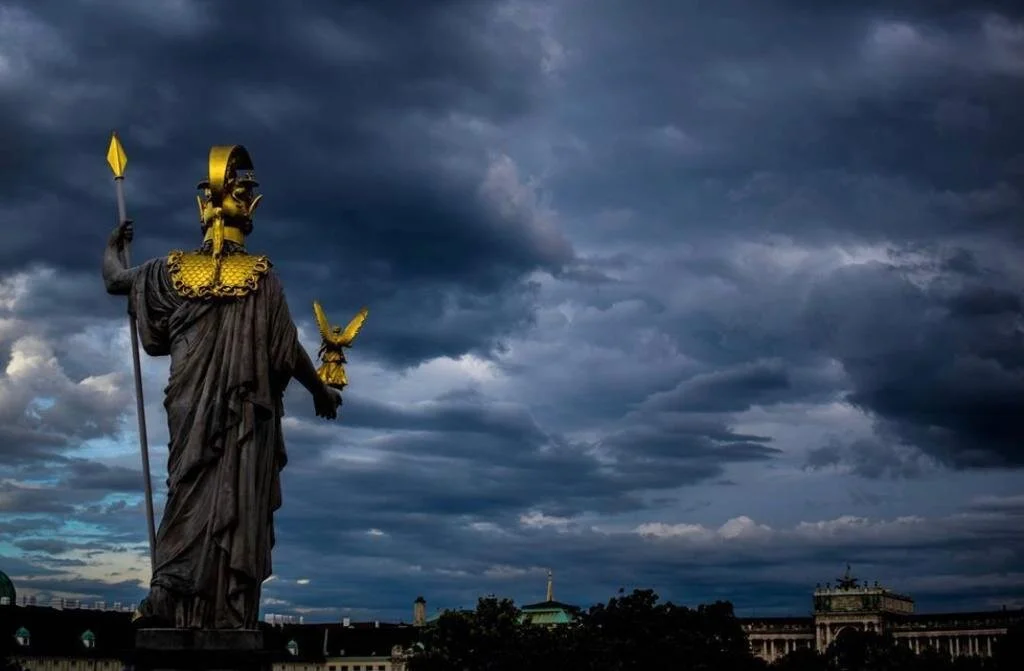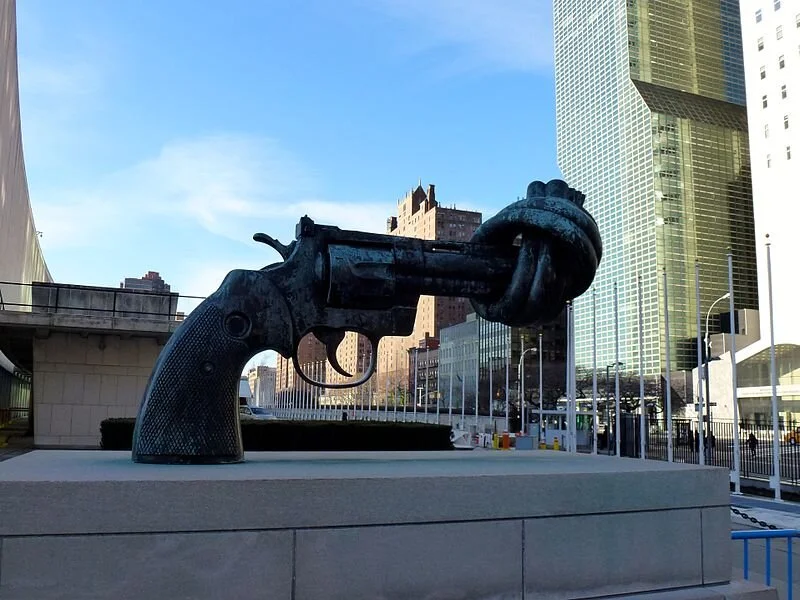Es gibt viele Definitionen von Terrorismus und sie enthalten verschiedene Elemente. Vor allem ist Terrorismus politische Gewalt, die sich bewusst und wahllos gegen Zivilisten richtet. Die Terrorattacken in Frankreich erfüllen diese Bedingungen. Terrorismus gibt es unabhängig davon, ob er politischer, ideologischer, oder religiöser Natur ist.
STANDARD BLOG: 65 Jahre Neutralität, 25 Jahre EU-Beitritt: Ein Widerspruch?
Die europäische Integration als Modell zur Überwindung nationaler Konflikte hat viel für die innere, aber auch äußere Sicherheit beigetragen. 25 Jahre nach dem EU-Beitritt Österreichs sollten wir uns gerade am Nationalfeiertag, an dem die fast schon identitätsstiftende "immerwährende Neutralität" gefeiert wird, der Frage stellen, was dies heute noch bedeutet.
Der Standard Blog: Gesellschaft - Macht - Frieden
War in the Caucasus: The Moscow Deal, the continuous fighting and the role of the OSCE
What we are witnessing since late September in the Nagorno-Karabakh region is a new full-scale war. It is affecting civilians and soldiers alike on both sides with hundreds of casualties. Nevertheless, it took Russia as a regional stakeholder a long time to summon Azerbaijan and Armenia to Moscow for a high-level crisis meeting. After drawn-out deliberations on the 10th October, the rivals finally agreed to a humanitarian cease-fire for the purpose of exchanging prisoners and casualties. Despite a re-confirmation of the truce on the 17th October, fighting is still continuing.
US ELECTIONS: WHAT IS AT STAKE FOR THE EU?
Certainly, the outcome of the US presidential elections will have some important consequences for the EU. For many observers and political actors, good transatlantic relations are vital for European security and peace. And they regard good relations between the two sides of the Atlantic as traditional and even „natural“. But is it really true, that good transatlantic relations are natural and obvious? And any other kind of relations are historically an exception?
War in the Caucasus: State, no State? A Legal Perspective on the Nagorno-Karabakh Conflict
The most recent escalation in the conflict over Nagorno-Karabakh sheds light on a number of complex legal issues. On the one hand, the region still belongs to Azerbaijan even although it is factually controlled by the self-declared “Nagorno-Karabakh Republic”. On the other hand, that by itself does not provide a free pass to retake lost territory by force. A few observations on the legal aspects of the current escalation between Azerbaijani and Armenian forces.
War in the Caucasus - Karabagh conflict: Why war?
The violation of the ceasefire on 27th September was unprecedented in terms of its scale, weapons used, casualties and intensity. This time it was also distinguished by a more active position of Turkey, who through political backing of Azerbaijan seemed to be challenging Russia’s domination in the security of the region. It lasted for two weeks, resulting in the return under Azerbaijan’s control of a part of two occupied regions and agreement of the humanitarian ceasefire with mediation of Russia’s president Putin. However, the ceasefire was almost immediately violated and the civilian targets of the second largest city Ganja were shelled from the Armenian territory causing significant destruction of apartment buildings and casualties among the population.
Friedensförderung und Gewaltprävention neu gedacht
Die Prinzipien "Hilfe vor Ort" und "Vorbeugen ist besser als Heilen" stehen hoch im Kurs. Einfaches Wegducken, militärisches Drüberbügeln und nachträgliches Reparieren kosten und sind zunehmend unpopulär. Die türkis-grüne Bundesregierung hat sich im Regierungsprogramm auf die Prüfung der Einrichtung eines Zivilen Friedensdienst in Österreich verständigt - ein Pionierprojekt entsteht.
Austria and its Neutrality—A Tradition with Potential
On October 26, 1955, two related events occurred in Austria. On the one hand, it was the first day without allied soldiers on Austrian territory. That outcome had been agreed on in the “State Treaty,” of May 15, with the victors WWII powers, Britain, France, the US, and the USSR. Thereby, Austria fully regained its independence. On the other hand, it was also the day on which the country came true on a promise that the Raab government had made to obtain the Soviet approval to the treaty: the parliament enacted a federal law which established that for “the purpose of the permanent assertion of its independence and (…) the inviolability of its territory, Austria freely declares its permanent neutrality.”
EU OFFERS AGAIN TO HELP WESTERN BALKANS - BUT WE NEED MORE
With all the crises in the Middle East, the Eastern Mediterranean and the South Caucasus, one could forget to deal with the problems of the EU’s immediate neighbors in the Western Balkans. The slow progress and the permanence of unsolved issues of course help to forget and overlook this area. But of course not for the IIP, which pays special attention to the youth of that region. And also for the Vienna Institut for International Economics - WIIW, which deals strongly with the economic development of that area, there is no forgetting. And recently, the European Commission published its progress report on enlargement and a proposal for an investment package for the Western Balkans. Reason enough to look closely to the Western Balkans issues and challenges.











